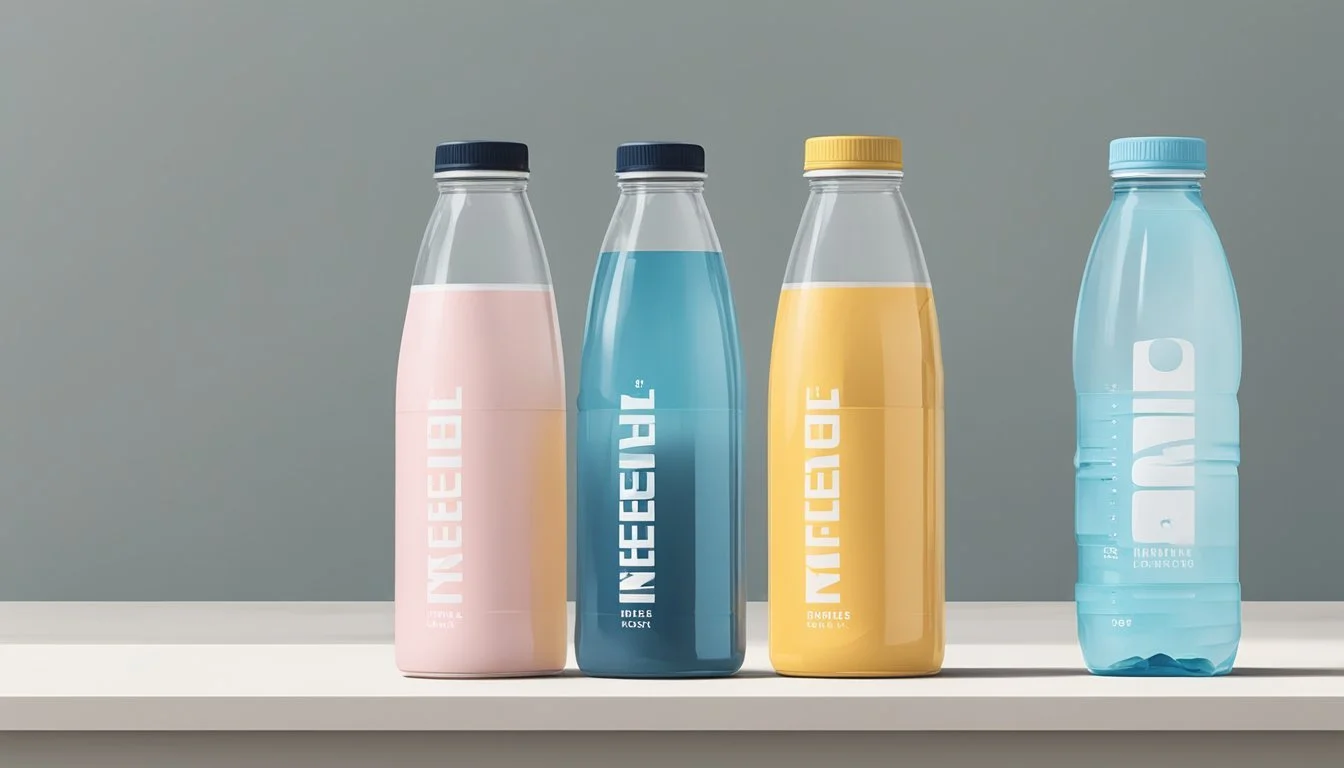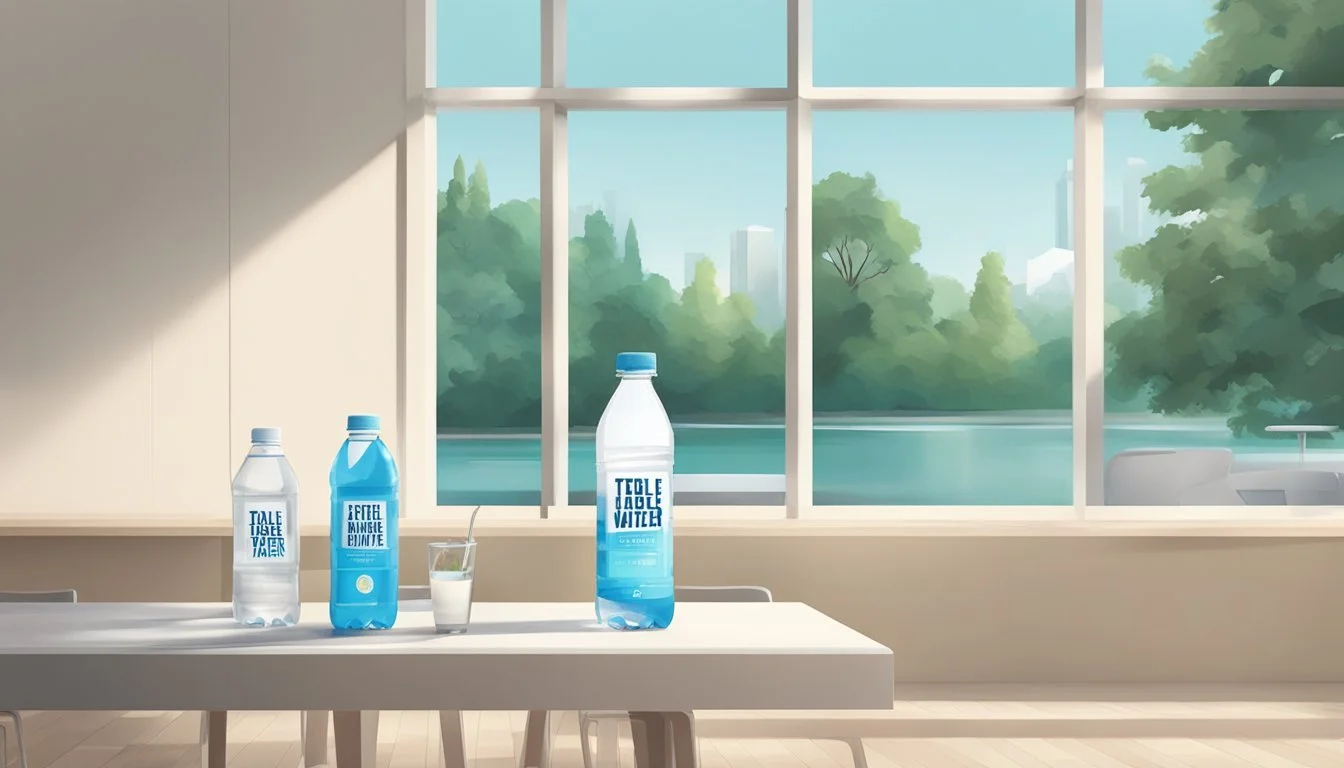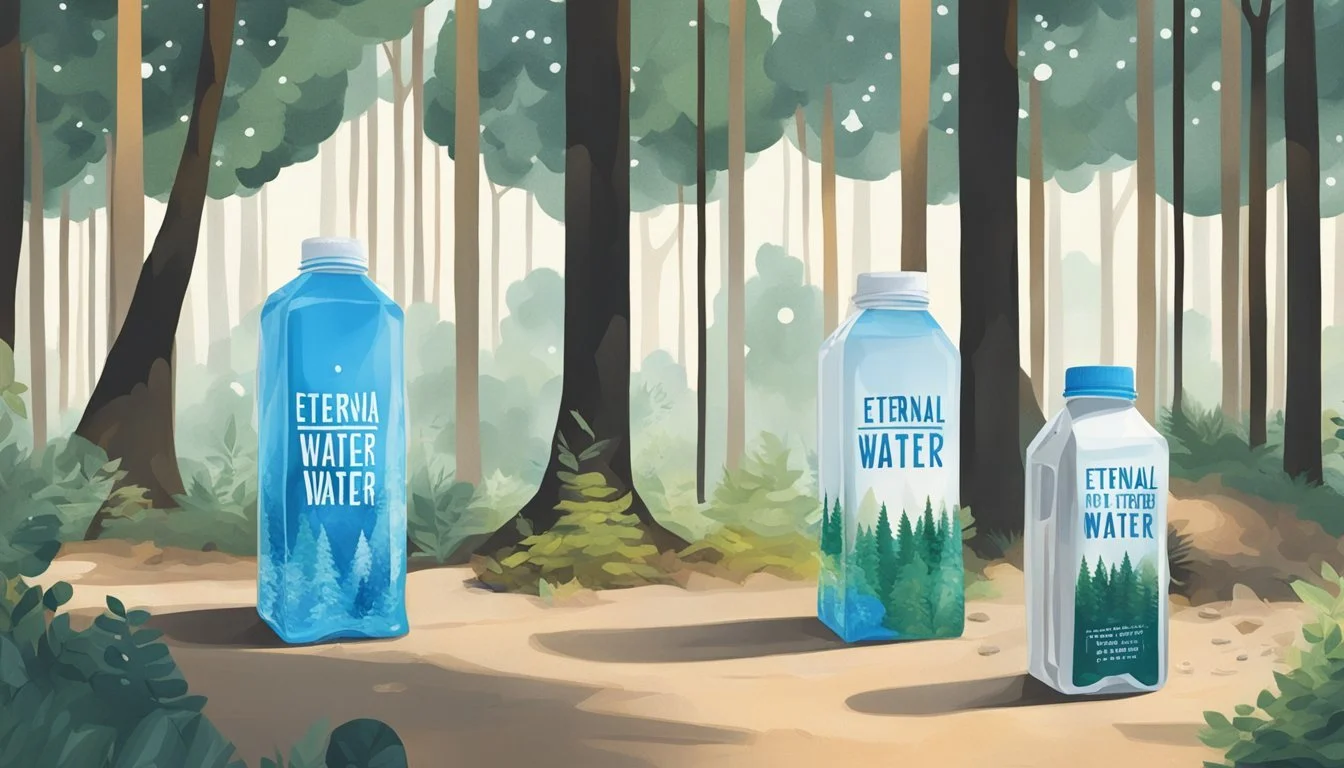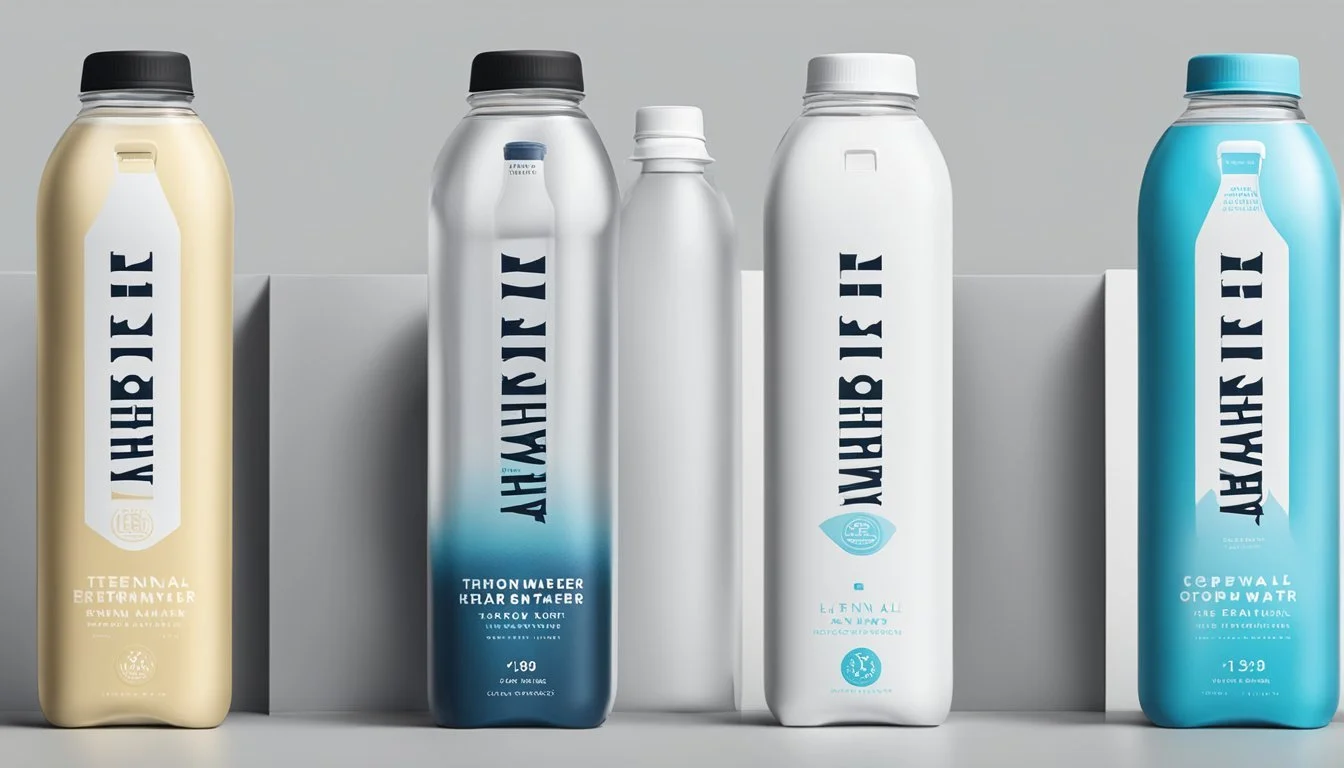Boxed Water vs. Eternal
Comparing Eco-Friendliness and Taste
In the realm of hydration, consumer choices often extend beyond the mere content to the packaging and the environmental impact it carries. Boxed Water and Eternal, two distinctive bottled water brands, serve as prime examples of how companies are addressing sustainability while providing consumers with the essential resource of water. Boxed Water presents its product in cartons predominantly made of paper, a move towards sustainable packaging, while Eternal offers naturally alkaline spring water bottled at the source in recyclable PET plastic.
Each brand brings its own set of environmental considerations. Boxed Water's cartons are reportedly comprised of 74% paper, 1% aluminum, and 25% plastic, designed to maintain water resistance and product integrity. Eternal, on the other hand, banks on the purity and quality of its water source, and emphasizes the use of recyclable materials in its bottles. The decision between the two may hinge on personal preference, the level of importance placed on environmental factors, or taste.
As consumers evaluate which bottled water to buy, they face a complex intersection of factors: the environmental ethos of the packaging, the quality and source of the water, and the overall impact of the product on the environment. In assessing Boxed Water and Eternal, one must consider the trade-offs between sustainable packaging and the benefits of naturally sourced water, making the choice between the two a reflection of individual values and preferences.
Boxed Water vs. Bottled Water: An Overview
In comparing Boxed Water and Bottled Water, it is crucial to understand the distinctions between these two packaging methods, especially in terms of materials, environmental impact, and sustainability.
What is Boxed Water?
Boxed Water is a type of water packaging that primarily utilizes sustainable paper in the form of a cardboard box. Boxed Water Is Better, a company recognized for this innovative packaging, designs its cartons with about 74% paper, 1% aluminum, and 25% plastic. The inclusion of plastic ensures waterproofing and the integrity of the seal. The paper used is often sourced from sustainable forests, which contribute to the product's sustainable appeal. The brand positions itself as a more eco-friendly alternative to traditional plastic bottles, with a focus on reducing the carbon footprint and cutting down the use of single-use plastic.
What is Bottled Water?
Bottled Water refers to water that is packaged in plastic bottles for retail sale. Plastic bottles are usually made from materials that can include polyethylene terephthalate (PET) for single-use bottles or high-density polyethylene (HDPE) for sturdier, reusable bottles. The production and disposal of these plastic bottles have raised environmental concerns due to the significant carbon footprint and the challenges presented in the recycling process. Despite recycling efforts, many plastic bottles end up in landfills or as litter, raising issues around sustainability and the impact on the environment.
Boxed Water presents an alternative with its focus on using recyclable and sustainable packaging. They aim to decrease reliance on single-use plastic bottles, which are a staple in the bottled water industry. Both Boxed Water and Bottled Water companies offer a necessary resource, but they differ significantly in their environmental philosophies and the execution of sustainable practices.
Environmental Impact
In assessing the environmental impact of bottled water, the focus is on the sustainability of packaging materials and their lifecycle from production to disposal.
Effects on Ecosystems
Boxed Water packaging typically utilizes a significant proportion of paper, a renewable resource, which can be less harmful to ecosystems if sourced sustainably and if proper carton recycling facilities are available. In contrast, the Eternal bottled water relies heavily on plastic, which often ends up as plastic pollution, harming oceans and marine life. Plastic pollution is especially detrimental, as it can injure or poison fish and other aquatic species when they ingest or become entangled in plastic debris.
Carbon Footprint Comparison
The production process of both boxed and plastic water bottles involves the emission of greenhouse gases, contributing to global warming. Boxed water claims a lower impact on ozone depletion compared to plastic, due to reduced emissions during production. However, producing paper also can have a notable carbon footprint due to deforestation and the paper-making process. Alternatively, plastic bottles, primarily made from oil, have a significant carbon footprint from fossil fuel extraction and processing.
End-of-Life Outcomes
Recycling is a key factor in mitigating environmental impact. Boxed water cartons, when recycled, create less single-use waste and can help reduce the burden on landfills. However, the actual environmental benefit hinges on the availability and efficiency of carton recycling. Eternal's plastic bottles, if not recycled, take hundreds of years to decompose, often ending up in landfills or leaching into environments, contributing to landfill overflow and plastic pollution. The recyclability of both materials is critical in assessing their overall environmental friendliness.
Health and Safety
When considering Boxed Water and Eternal as options for bottled water, one must assess the purity of the drinking water itself and the safety of the materials used in packaging.
Purity of Water
Boxed Water: The brand prides itself on providing water that is free from contaminants. Their water undergoes a multi-step purification process that includes ultraviolet light, carbon filtration, and reverse osmosis.
Purification Process: Advanced filtration and UV sterilization.
Quality Assurance: Regular testing to ensure safety.
Eternal Water: Sourced from natural springs, Eternal offers naturally occurring electrolytes and essential minerals. The spring water is not subjected to artificial purification processes that alter its natural composition.
Source: Protected underground springs.
Natural Minerals: Contains naturally occurring electrolytes.
Materials Used in Containers
Boxed Water: The packaging is designed with sustainability in mind, using paper from well-managed forests.
Materials:
Paper: (74%) Sourced from sustainable forests.
Aluminum: (1%) Thin layer within the carton.
Plastic: (25%) To waterproof and seal the paper.
Eternal Water: Typically offered in plastic bottles, they prioritize health and safety by staying BPA-free and using FDA-approved materials.
Materials:
Plastic Bottles: BPA-free and FDA approved for food contact.
Recyclability: Emphasis on easy recycling across municipalities.
Both companies ensure the safe delivery of water with an emphasis on maintaining the integrity of the product from source to consumer through the use of quality materials in their packaging. Boxed Water highlights environmental responsibility with predominantly paper-based cartons, whereas Eternal Water focuses on the natural mineral content of their spring water delivered in safe, recyclable plastic bottles.
Consumer Experience
In evaluating Boxed Water and Eternal brands, consumers prioritize the taste and quality of the water, along with the convenience and usability of the packaging.
Taste and Quality of Water
Boxed Water presents itself as an eco-friendlier alternative to traditional plastic bottles, boasting a 92% plant-based package. The water it contains is purified through a proprietary multi-step process that includes carbon filtration, UV light treatment, and reverse osmosis, ensuring a clean and fresh taste. This product may appeal to consumers looking for a minimal environmental impact as well as a purified drinking experience.
Eternal, on the other hand, offers naturally sourced alkaline water that contains minerals and electrolytes. Sourced from protected underground springs, Eternal Water undergoes minimal processing, preserving the natural mineral content. Consumers who prefer a natural taste and the nutritional benefits of naturally occuring electrolytes and minerals often gravitate towards this brand.
Convenience and Usability
Boxed Water:
Water on the Go: The carton design offers portability and is conducive to an active lifestyle. It fits comfortably in bags and some car cupholders.
Personal Use: A resealable cap adds to the convenience, making it a suitable option for personal consumption throughout the day.
Reusable Water Bottle: While the box is not designed to be a permanent reusable bottle, it serves as an intermediary step for those transitioning from single-use plastic bottles.
Eternal:
Reusable Bottle: Eternal's plastic bottles are durable and may be reused, though not as sustainable as a dedicated reusable water bottle.
Resources Conservation: The brand's commitment to responsible sourcing resonates with eco-conscious consumers seeking to conserve natural resources.
Tap Water Alternative: For consumers who do not have access to or do not trust their tap water, Eternal offers a viable alternative that ensures a supply of high-quality water.
Both brands serve consumers who are conscious about their personal health and environmental impact. Yet, preferences may change based on individual values, such as the importance of minerals in the water or the environmental footprint of the packaging.
Market Trends and Consumer Behavior
The bottled water market is evolving as sustainability becomes a key factor for consumers. Companies are responding with innovative solutions, while consumers increasingly favor products that align with their personal environmental values.
Demand for Sustainable Options
Consumers are expressing a growing demand for sustainable bottled water alternatives. Boxed Water, for instance, has tapped into this demand by offering a product that boasts a high renewable content, with packaging that's 92% plant-based. This shift is driven by a broader consumer awareness of the environmental impact of single-use plastic bottles. As a result, bottled water companies are innovating their packaging to be more recyclable and sustainable.
Adoption and Perception Trends
Perception plays a significant role in consumer adoption of sustainable bottled water products. Companies like Boxed Water are not only focusing on the sustainability of their packaging but also on the water source itself to ensure it meets consumer expectations for both quality and sustainability. Meanwhile, the Eternal brand also fits within this landscape, offering water sourced from natural springs in recyclable bottles, allowing consumers to align with sustainability without compromising on the taste and quality they are accustomed to. Adoption trends show a positive trajectory as more consumers make the switch to these alternative options, viewing them as a personal contribution to environmental change.
Corporate Social Responsibility
In the bottled water industry, corporate social responsibility is paramount, focusing on sustainability, recycling, and ecological partnerships. Companies are increasingly assessed by their actions to preserve the environment and engage in ethical partnerships.
Brands Leading the Way
Boxed Water is Better and JUST Water are two water brands at the forefront of corporate social responsibility in the bottled water market. Boxed Water is Better stands out with its cartons composed of 74% paper, 1% aluminum, and 25% plastic to maintain water resistance and integrity. This combination aims to be more sustainable than traditional plastic bottles. They demonstrate commitment to the environment not only through packaging but also through initiatives like reforestation.
JUST Water also takes a significant stance on sustainability with its fully recyclable cartons made of 82% renewable resources. The company has pledged allegiance to ethical environmental practices, setting it as a core mission for the brand.
Partnerships and Initiatives
Several impactful partnerships and initiatives showcase the dedication of these companies to corporate social responsibility.
Boxed Water is Better has partnered with organizations such as 1% for the Planet and National Forest Foundation. Through these partnerships, they contribute to global reforestation efforts and sustainability projects.
Partnerships:
1% for the Planet: Financial commitment to environmental nonprofits.
National Forest Foundation: Engagement in planting trees scheme; a pledge to plant two trees for every social media post with the hashtag #BetterPlanet.
JUST Water aligns itself with similar values and has joined forces with the Ocean Blue Project to work on ocean cleanup efforts. The brand's dedication to giving back to the Earth is visible in its corporate practices.
Initiatives:
Ocean Blue Project: Collaboration on ocean conservation.
Both brands promote sustainability with the hope of leading the industry towards a more eco-friendly future. Notably, companies like Alaska Airlines have adopted Boxed Water is Better products as a step to minimize in-flight plastic use, reflecting a broader industry movement towards sustainability driven by responsible brands.
Alternatives and Future Outlook
In pursuit of sustainability, the future of bottled water is steering toward innovative packaging and consumer choices that prioritize environmental impact. Alternatives such as boxed and canned waters represent a shift from traditional single-use plastics, indicating a trend towards materials like paper and aluminum.
Innovations in Sustainable Water Packaging
The packaging of water has seen a gradual yet significant transition from plastic bottles to more sustainable options like cardboard boxes and aluminum cans. Boxed water typically utilizes a combination of sustainable paper, a small percentage of aluminum, and a plastic lining to maintain product integrity and ensure water resistance. Companies such as Boxed Water Is Better are at the forefront of this change, with cartons made up largely of paper sourced from well-managed forests. Cardboard box water packaging often boasts a higher percentage of plant-based materials and is widely regarded as more environmentally friendly compared to plastic bottles.
The Role of Individual Decisions
Consumers play a crucial role in driving market change, and their individual decisions can have a substantial impact on the environment. Opting for reusable bottles or supporting brands that use recyclable or alternative materials can encourage a broader industry shift. The choice to purchase water in a glass bottle or in a cardboard box—materials that typically have better recycling rates than plastic—reflects a deliberate move toward sustainability.
Emerging Solutions
Looking ahead, emerging solutions are actively being explored and developed. These include canned water, which is seen as a viable alternative due to the high recyclability of aluminum. Glass, while heavier and more fragile, offers a distinct advantage as it can be endlessly recycled without degrading in quality. Moreover, an increased push for regional sourcing of materials can further lessen the environmental impact by reducing transportation-related carbon emissions. As technology advances, it is plausible to see these alternatives become more prevalent, coupled with better waste management and recycling systems, paving the way for a more sustainable future.








